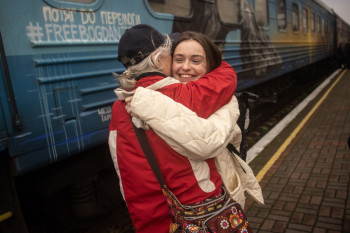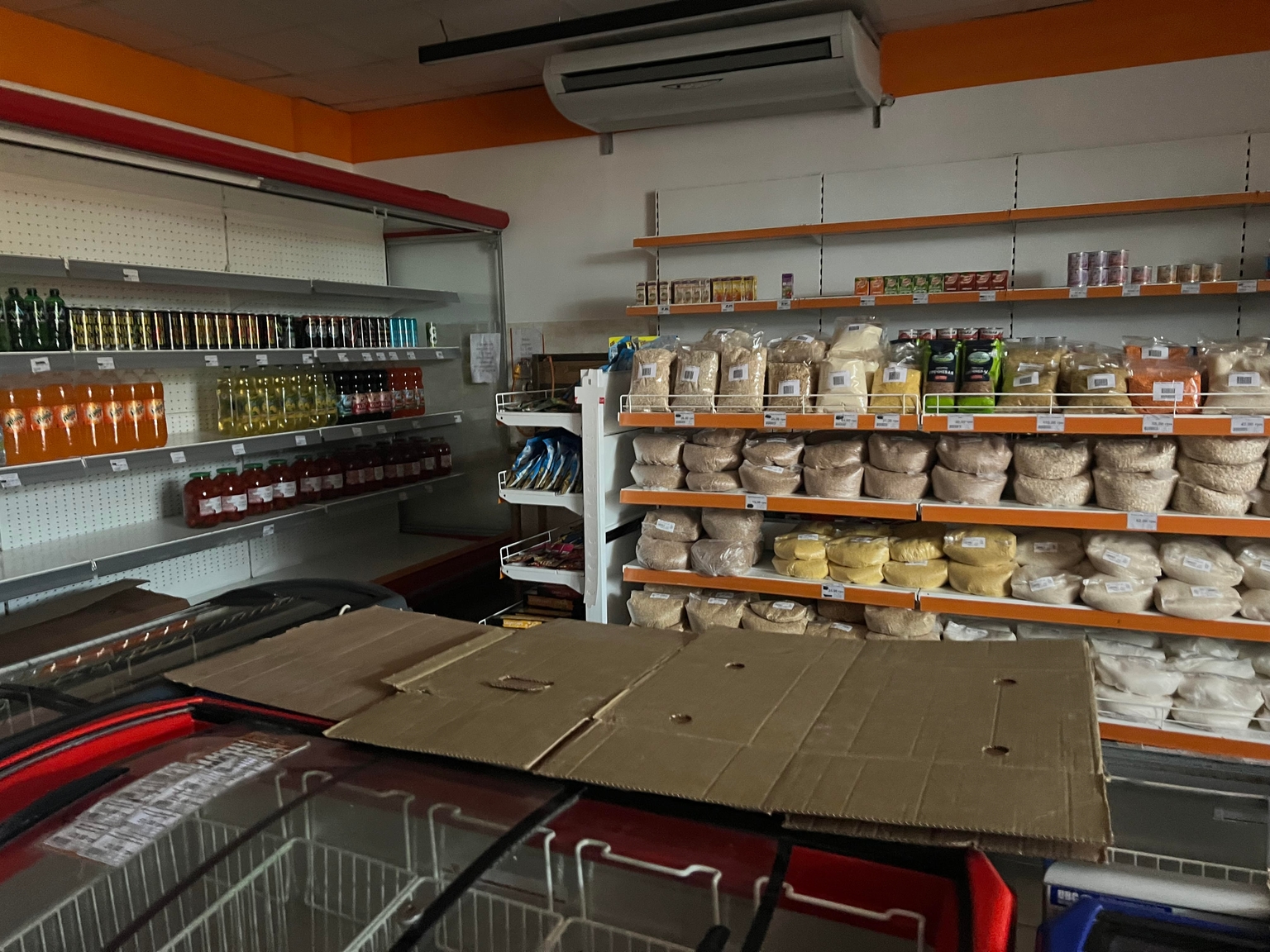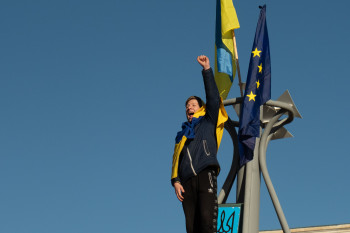Life slowly returning to Kherson, still without power and water

KHERSON – Standing outside her small, dimly lit grocery store, Natalia chain-smokes several cigarettes until a customer finally shows up at the door.
The 48-year-old shopkeeper misses being busy all day. More than a week after Ukrainian forces recaptured her native Kherson, she is still waiting for her long-time customers to show up.
After Russia sacked Kherson in early March, the influx of customers at Natalia’s store sharply decreased, and so did the quantity and quality of goods sold.
“We had many people coming (before),” Natalia told the Kyiv Independent.
When the full-scale war started, her store became a place where people could find much-needed support. “Elderly women, men would come for milk or for some biscuits... We would talk about the weather, how we felt, we just supported each other – we are one family.”
“We have lived here for so many years, we know everyone,” she said, referring to fellow residents in her small largely-empty neighborhood.
For most of November, Kherson is without power, water, and heating. Natalia hopes there will be electricity soon so she can resume selling warm beverages, such as tea, like in the old times.
But her street is still haunted by the war.
Just next to the shop is a former pre-trial detention center that Russians used as a torture chamber. Kherson residents were forcibly dragged there on trumped-up charges, and screams could be heard across the street.
Natalia, who worked everyday during the Russian occupation to serve her customers’ needs, said it was “scary” to hear the screams a few times a week.
Her 22-year-old colleague, Daria, said she did her best to ignore them, fearing consequences from the Russians.
“We understood that one wrong word or move could put us there, too,” Daria said.
After surviving the Russian occupation, Kherson residents grapple with difficult living conditions as they resume life in the city. Some small businesses are now open, mostly grocery stores and cafes, where owners greet fellow Khersonians with a smile.
For the first time in nearly nine months, Kherson residents could openly discuss the war without fearing repercussions. Those who barely left their homes during the occupation enjoy the sunshine and fresh air, sharing a laugh with one another.
The central Freedom Square, where humanitarian aid is handed out, is packed with hundreds of Kherson residents.
Dozens of Kherson residents told the Kyiv Independent that they could hardly believe their eyes – the city used to be largely empty after mid-afternoon, and people avoided walking in large groups.
At a larger grocery store located in front of the central square, Bohdan Kosatyy told the Kyiv Independent that more than 1,000 customers are shopping every day – compared to a few hundred during the occupation days.
The 27-year-old clerk said that Ukrainian products returned on the shelves for the first time in a long time after months of only seeing “very limited” Russian products in the shop.
Asked what he enjoys the most about working, Kosatyy said that it’s the long-forgotten free interaction with people “because we are social creatures.”
Social zones
Aroma Kava, a well-known coffee chain with over 200 shops across Ukraine, is filled with customers socializing as they sip their beverages.
Around the place, Kherson residents sit while they wait for their devices to charge at an extension cable provided by Aroma Kava.
Though few in number, coffee shops that are now open serve as both charging stations and a place to meet new people.
“We are all very happy,” an Aroma Kava employee, who asked to be anonymous due to corporate rules, told the Kyiv Independent.
Another coffee shop within walking distance, called Prostir Coffee, is adored by locals for its cozy atmosphere. A loud generator that sits outside the cafe welcomes people who are unable to charge their devices elsewhere.
Mykyta Bespalko, 22, stared into the distance as he sat on a wheelchair next to a long coffee table.
“I am watching people come in and head out of the cafe,” Bespalko told the Kyiv Independent.
Bespalko said his mother and younger sister are stuck in the Russian-held territory on the other side of the Dnipro River, continuing to make his life difficult. But he now feels safe to leave home and enjoys spending time outside.
For the past five days, the art enthusiast with a disability spent hours at the cafe until his phone and a power bank were charged up.
“A week ago, I’d never leave home,” Bespalko said, referring to the occupation days when he left the house once a month.


















